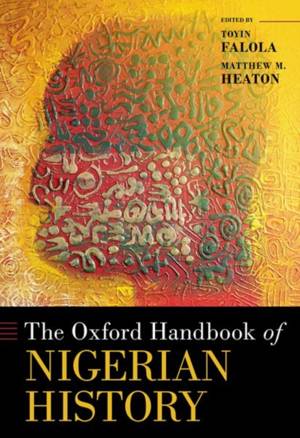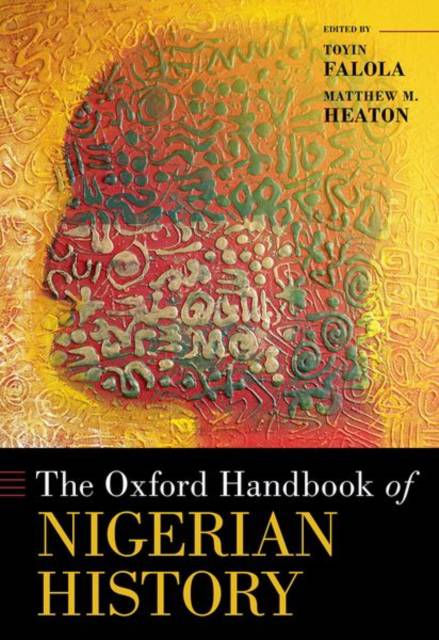
- Afhalen na 1 uur in een winkel met voorraad
- Gratis thuislevering in België vanaf € 30
- Ruim aanbod met 7 miljoen producten
- Afhalen na 1 uur in een winkel met voorraad
- Gratis thuislevering in België vanaf € 30
- Ruim aanbod met 7 miljoen producten
Zoeken
Omschrijving
The Oxford Handbook of Nigerian History provides a comprehensive history of Africa's most populous and most rapidly developing country. Rather than centering the rise of the nation-state, the Handbook reads the narrative of national politics alongside deeper histories of political and social organization, as well as in relation to competing influences on modern identity formation and inter-group relationships, such as ethnic and religious communities, economic partnerships, and immigrant and diasporic cultures. Consisting of 36 chapters, the Handbook is separated into five major sections, starting with the historiography of Nigeria--namely, the systems of knowledge handed down by the indigenous, Christian, Islamic, colonial, and post-colonial traditions. From that foundation, the chapters cover the development of nomadic and agricultural societies, the colonial era, the emergence of a modern Nigeria, and the impact of Nigerians outside of the country's borders. This transnational approach incorporates the most important ideas from the new scholarship emerging in the 21st century, creating a forward-looking volume appropriate for a dynamic, diverse, and swiftly changing Nigeria.
Specificaties
Betrokkenen
- Auteur(s):
- Uitgeverij:
Inhoud
- Aantal bladzijden:
- 792
- Taal:
- Engels
- Reeks:
Eigenschappen
- Productcode (EAN):
- 9780190050092
- Verschijningsdatum:
- 18/02/2022
- Uitvoering:
- Hardcover
- Formaat:
- Genaaid
- Afmetingen:
- 180 mm x 257 mm
- Gewicht:
- 1451 g

Alleen bij Standaard Boekhandel
+ 708 punten op je klantenkaart van Standaard Boekhandel
Beoordelingen
We publiceren alleen reviews die voldoen aan de voorwaarden voor reviews. Bekijk onze voorwaarden voor reviews.











